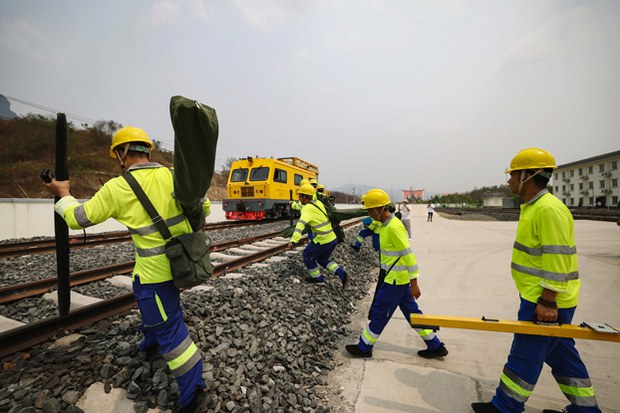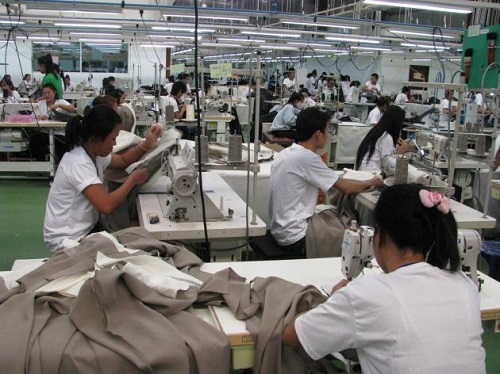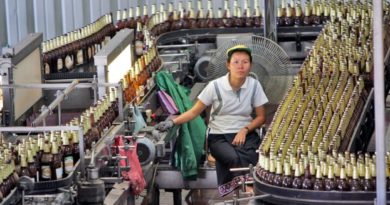Despite a 25% Wage Increase, Laborers Continue to Struggle with the Rising Cost of Living
Source: Radio Free Asia
The Lao government has raised the monthly minimum wage for workers at privately-owned companies by nearly 25%, though laborers say it is still too low given persistent inflation and the rising cost of living in the Southeast Asian country.
The office of Lao Prime Minister Sonexay Siphandone issued an official notice on Aug. 6, announcing the approval of a 300,000 kip (US$15) increase to 1.6 million kip (US$82) a month beginning in October.
But the new minimum level doesn’t apply to state workers’ salaries.
The inflation rate remained at a still-high 28% in July after hitting a peak of more than 41% in February. That combined with a devaluation of the kip has made Laotians complain that they can’t eke out a living given the rising costs of gasoline, food, and daily necessities.

A labor official from Sekong province told Radio Free Asia that private companies can implement the pay raise immediately without waiting until October.
“They posted [the notice] on Facebook to begin reinforcing right away, but we did not ask them when it must be reinforced at the district level,” he said.
Lao workers welcomed the move but said the monthly minimum wage should be higher.
One worker from Xayabury province said the salaries that he and others receive are only enough to pay for gasoline, forcing them to take on side jobs such as raising chickens and growing vegetables or to go abroad for jobs where salaries are higher than they are in Laos.
“South Korea pays workers over 1 million kip per day, while Thailand pays about 100-200 Thai baht (US$3-6) per day,” he said.
The new increase will not be enough to persuade Laotians to work for domestic companies, said a small business owner in Bokeo province, who like other sources in the report requested anonymity to speak openly without retribution.
Laotians may seek employment with foreign companies investing in Laos because they pay higher wages, though many are still interested in landing jobs abroad because of higher pay, he said.
“They might work with foreign companies such as companies from the United States, Australia, China or Thailand that invest in Laos and pay higher wages,” said the business owner.
But many Laotians are fearful that the economy will collapse in the near future, he said.
The Lao government has long been unable to solve the problem of lower labor costs in the country, even though officials previously said they would set up a committee to address it but did not follow through, a Lao economy expert said.
Instead, the government has allowed inflation, the devaluation of the kip, and the cost of living to get out of hand, creating hardship for low-income workers, he said.
These problems have left Lao workers with no choice but to seek employment in foreign countries legally or illegally, resulting in some falling prey to human traffickers or ending up in the sex trade, the expert said.
Others have become indebted to banks from which they borrowed money to pay for legal documents and plane tickets to go abroad, or they have disappeared after falling into the wrong hands in the fishing industry in countries like Thailand.
Lawmakers have issued previous calls for the government to raise the monthly minimum wage higher than 1.3 million kip.



